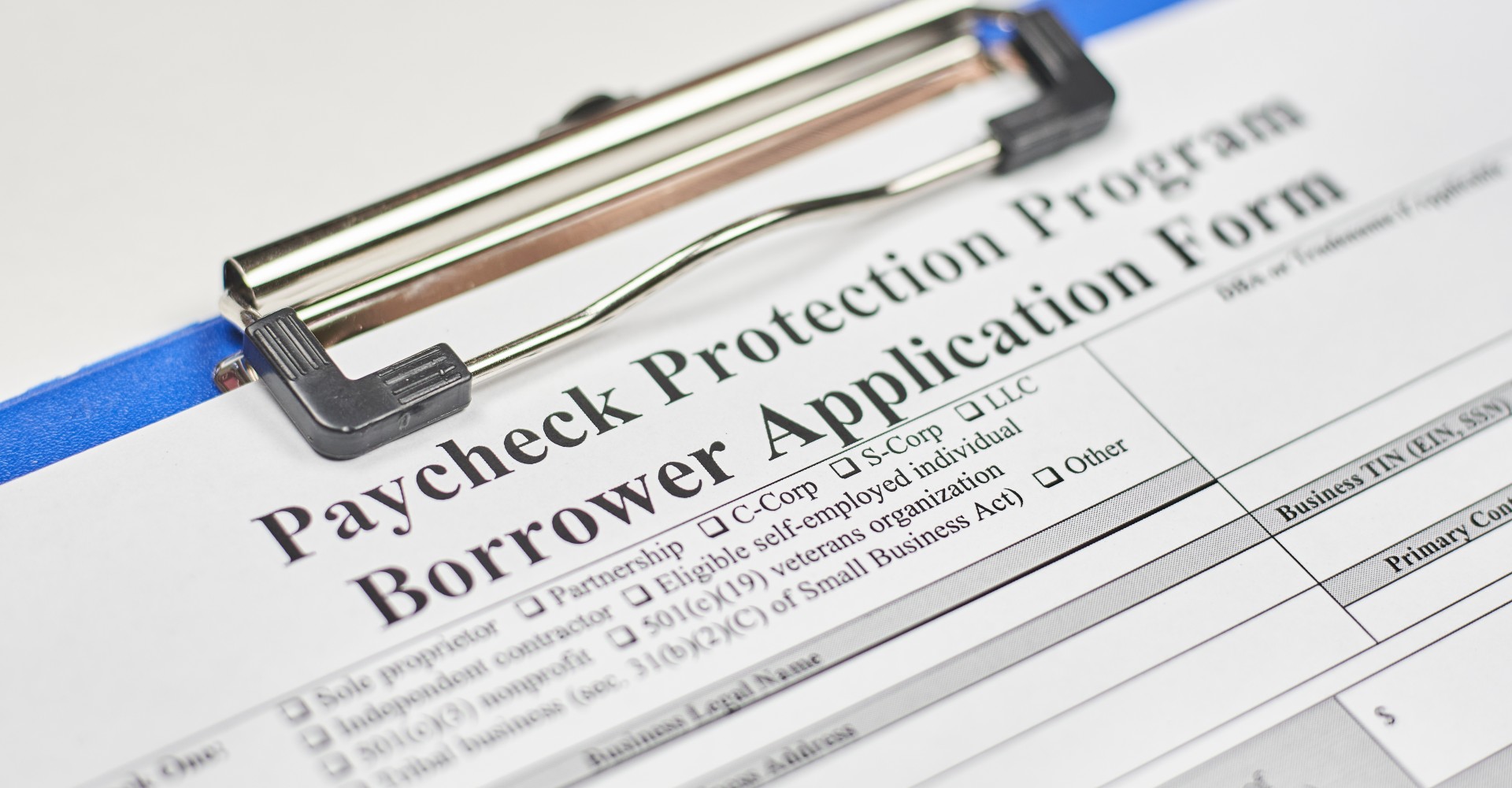It’s no secret that the coronavirus pandemic caused many hardships for small businesses. Companies across the country were desperately strapped for funds to keep their business alive. To help soften the blow of the pandemic, the federal government introduced a stimulus package designed to help businesses and citizens alike.
One of the government initiatives created during this time was the Paycheck Protection Program (PPP) that granted loans to small businesses. However, many people fraudulently applied for this program and fraudulently used the funds granted through this program, which created many legal whistleblower cases. Let’s take a look at the Paycheck Protection Program, and the rights whistleblowers have when exposing fraud in the program.
What Is the Paycheck Protection Program?
The Small Business Administration (SBA) created the PPP as a part of the Coronavirus Aid, Relief, and Economic Security (CARES) Act in 2020. The purpose of the PPP is to give financial assistance to small businesses impacted by the COVID-19 pandemic to keep employees on their payroll.
Small businesses that meet specific criteria are available for SBA-supported loans with a maturity of two years and an interest rate of 1%. Companies must repay the loans, unless they spend the money within a set period, and dedicate at least 60% of it towards payroll expenses such as salary, wages, employee benefits, hazard pay, and taxes assessed on compensation. The other 40% can be spent on:
- Utilities
- Rent or lease payments
- Mortgage interest payments
- Property damage from public disturbances not covered by insurance
- Software, accounting needs, and other operational necessities
- Supplier costs
- COVID complaint worker protections
To be eligible for loans in the PPP, businesses must be defined as:
- Sole proprietorships
- Independent contractors
- Self-employed individuals
The CARES Act requires PPP borrowers to make a good faith confirmation that:
- The loan is necessary due to the economic conditions caused by the coronavirus pandemic.
- They are not receiving duplicate funds from other SBA programs.
- They will use the funds to retain workers and make payroll, lease, and utility payments.
Additionally, an eligibility requirement added in 2021 is that businesses applying for a second PPP loan must demonstrate a 25% or greater reduction in revenue. Companies must prove this by comparing revenue between any quarter in 2020 with the same quarter in 2019. Businesses also must not have any current federal debarments, delinquent federal loans, suspensions, or have defaulted on any federal loans. If businesses violate any of the required terms, they could be committing fraud.
How Is Fraud Occurring in the PPP?
To speed up the distribution of funds, the SBA permitted lenders to rely on borrower certifications to determine eligibility. However, self-certification raised the potential for fraud. Additionally, many applicants violated eligibility requirements by lying on their applications. Businesses caught with fraudulent activity are subject to a qui tam lawsuit. A qui tam lawsuit occurs when a whistleblower brings a claim against a company or individual for defrauding the federal government.
Unfortunately, many individuals and businesses attempted to steal from government-allocated funds and wrongfully applied for a PPP loan. Some real examples of fraud in the Paycheck Protection Program include:
- A film producer deceitfully obtained $1.7 million from the PPP after applying for a loan to support payroll expenses for three film production companies. After receiving the money, he allegedly took the money to pay off car loans, credit card bills, and other personal expenses.
- The owner of a wedding planning company in Texas sought over $3 million in PPP loans. On his application, he claimed he had 120 employees when he actually had none. He ultimately received over $1.5 million in PPP loans which he allegedly used to make personal investments, pay home mortgage payments, and purchase a Tesla car.
- A Houston funeral director was arrested and charged with fraudulently seeking over $13 million in PPP loans for a nonexistent business. He falsified his identity, made up a number of employees and payroll expenses, and submitted false tax and bank documents. Of the $13 million for which he applied, he received over $1.6 million.

What Protections Do Whistleblowers Have Under Law?
Anyone aware of fraud involving PPP loans or COVID relief payments can file a qui tam lawsuit by working with a skilled whistleblower attorney. Before officially blowing the whistle, whistleblowers should meet with an attorney beforehand to learn about protections and rewards.
People who report fraud and file qui tam cases are protected under the False Claims Act. The False Claims Act prohibits retaliation against company employees, independent contractors, and agents. Any employee, contractor, or agent who gets threatened, harassed, demoted, suspended, or experiences any other discriminatory action can sue their employer and collect compensation under the False Claims Act. Additionally, whistleblowers who file qui tam lawsuits under the False Claims Act are entitled to rewards of 15% to 30% of the funds recovered through their case.
Additionally, the Minnesota Whistleblower Act offers protection to people who file qui tam claims in Minnesota. Thanks to this act, whistleblowers in Minnesota are protected against retribution in many situations that include, but are not limited to, the following:
- An employee shares data and findings with local government agencies or law enforcement.
- An employee reports an incident that they suspect violates state or federal laws to their employer, government agencies, or law enforcement.
- A state government employee discloses state services information to a constitutional officer or legislator.
- An employee refuses to perform an action that they believe violates the law.
Whistleblowers are essential actors when it comes to stopping Paycheck Protection Program fraud. The federal government wants to ensure that relief assistance is used for its intended purpose and that allocated funds are getting distributed to small businesses that are truly in need.
Consult an Experienced Lawyer if You Suspect PPP Fraud
The Paycheck Protection Program has helped businesses across the United States stay in operation and retain millions of jobs. In such a critical and challenging time, people’s jobs have been threatened, so government-allocated funds must get distributed to people and businesses who will actually use them to support their employees. Unfortunately, many people filed fraudulent PPP applications to secure money for their own personal gain.
If you suspect PPP fraud from an individual or business, you are protected under the False Claims Act and the Minnesota Whistleblower Act. The attorney advocates at MSB Employment Justice will work with you to get to the bottom of the fraud. Contact us today to set up a consultation.



